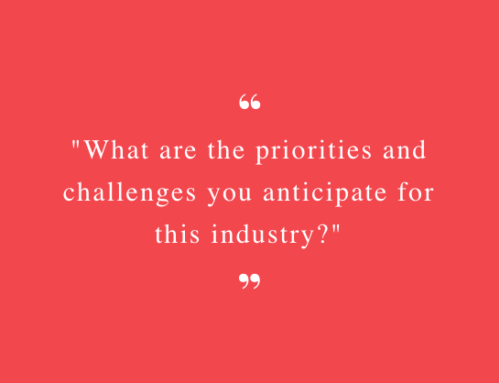
From GoGirlFinance.com, 1/23/15
When you leave the mother ship to work for yourself, there are just a few things you might miss. Along with the bad commute and worse coffee, you leave behind that steady paycheck from which a computer in a far off payroll office automatically deducted money for the things you never had to think too much about: health insurance, transportation, taxes, retirement. Now comes the reality check: The freedom of being self-employed has to come at the cost of being smart about your budget. You can’t afford not to think about those things. The good news is that, if you follow some expert advice we’ve gathered here, it doesn’t have to be hard.
1. Call It Something Else
If you cringe at the idea of a “budget,” reframe your thoughts. Financial life coach Ashley Feinstein calls it “happiness allocation” for her more reluctant clients. “The point of a budget is not to restrict you or make your life miserable. It’s really to have an honest view of what’s going in and what’s going out so you can make the best choice with your money.” In the case of someone self-employed, you’re creating a system to level out the highs and panicky lows of fluctuating income, and unexpected expenses, to create financial stability in your life and business.
2. Don’t Track Every Penny Forever
Well, at first you probably do have to track every cent, just so that you know where it all goes. “I think 99 percent of people don’t spend what they think they spend,” Feinstein says. So she has her clients keep a spending journal for a few weeks, writing down what they buy, how much it costs, and how they feel before and after each purchase. This helps you identify the problem areas, like things you buy that aren’t worth the guilt you feel afterwards. This kind of knowledge can be a huge stress reliever.
Once you have a handle on the trouble spots, you can go with the broader guidelines financial writer and marketing manager Kali Hawlk recommends: fixed expenses (rent, utilities, insurance, etc.), flexible expenses (“Costs that are still must-haves, but you have some control over how much you spend on them, like groceries or transportation costs,” Hawlk explains), and discretionary spending. You can use apps like Mint.com, or just a simple Excel spreadsheet — the important thing is to choose a format you’re most likely to stick with.
3. Estimate Your Monthly And Annual Earnings
When you’re first building your business, this can be daunting, but having a number in mind is also motivating. “If you don’t know what you expect to make, you don’t know if you’re over or under that amount,” Feinstein says. “Look against that number every month and see if you hit it. It’s fun to be able to say, ‘If I get these three things written, if I get these two new clients, I’m going to make enough money this month to hit my projections.’ It keeps you very focused.”
4. Set Aside Money For Taxes Every Month
How much should you save for taxes? “There’s no one right answer here,” Hawlk told us. “But if it’s possible, I always advise saving more than you think you need. Personally, I automatically skim off 30 percent of my gross income and set it aside for taxes.”
You only have to send in your estimated taxes as a self-employed person every three months, but it’s a lot smarter to figure out this number more often, so you’ll have fewer surprises. Feinstein says she checks the IRS guidelines to figure out her monthly number, but then checks in with her accountant on a quarterly basis. “I am a big believer of paying professionals to make my life easier,” she adds.
5. Think of Savings as a Fixed Expense
Oh, yeah, there’s another thing you don’t have when you’re self-employed: sick days and disability. “Your emergency fund should be larger when you’re self-employed than when you can depend on a regular, known paycheck,” Hawlk says. “Start with saving $1000 for emergencies, and work up from there. Ideally, you’ll eventually have six to 12 months’ worth of net pay saved just in case.”
On top of that, you’ll need to save for retirement. This is another area where a professional can help you choose between SEP-IRA, a solo 401k, or a simple IRA, depending on your income and retirement goals.
6. Reward Yourself for Meeting Big Savings Goals
First of all, when you get a big paycheck from a client, divide everything up just like you planned, and put what’s left over in savings.
The tough part is staying motivated to do so. It’s easy to save for something immediate, like a vacation or a wedding. But retirement or a child’s college fund? So. Far. Away. That’s when you set up little rewards so you’ll feel short-term benefits too. Every time you’ve saved your target amount for one of those big things, allow yourself a small shopping treat, a spa treatment or whatever suits your fancy.
7. Be “Scrappy” With Your Business
When you’re starting out, you might be tempted to spend money on classes and conferences. It’s all an investment, right? But both Feinstein and Hawlk say you don’t need to pour a ton of money into things like this. ” If you want help, look for a mastermind group first,” Hawlk says, referring to the small networking/support groups. “It’s completely free and you’ll gain access to a group of likeminded people that can provide you with more value than any paid class you buy from a ‘guru.’ ”
It also doesn’t hurt to ask for a discount. “People want to support you and help you succeed,” Feinstein says. “I had a friend recently who [wanted to go to a conference and] said, ‘I’m a bootstrapping entrepreneur, can I have a discount?’ And they said, ‘Sure.’ ” You can also try to barter for goods and services, and then the whole transaction can remain happily off your budget.
With a little consistency, budgeting can lessen the stress of working for yourself. That, in turn, will make it easier for you to concentrate on making your business a success!





